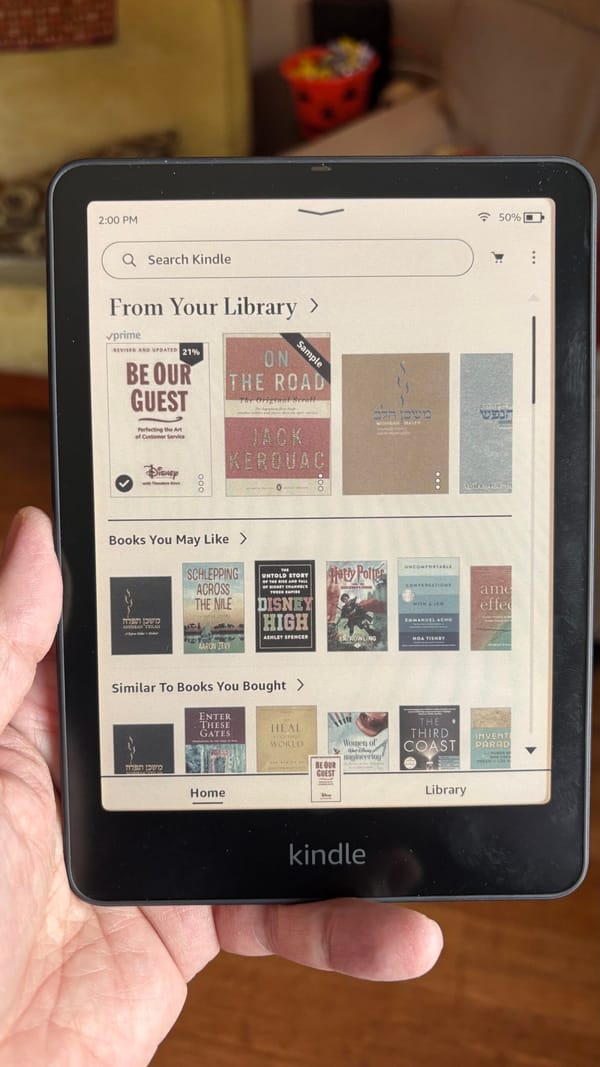The Autistic Serenity of a Surgical Social Cull
Any autistic will tell you: quieter is better.

I didn't have putting noise cancelling headphones on my social media on my 2025 bingo card, but so it is. Autistics rise and fall–well, we often mostly stumble–based on the level of everyday stress we have to deal with. Since our brains aren't able to dump stress anywhere nearly as efficiently as those of neurotypical people, that stress will build until, like an overloaded circuit, only a meltdown or a shutdown can unplug us long enough to find some relief. (Now you understand why every autistic kid you've ever watched melt down was melting down.)
Five years on since learning of my autism, it still surprises me, the very particular, channeled ways in which I can become overwhelmed without realizing it. By the glare of the sun. By a room that's not the right temperature or humidity (and "right" changes constantly, throughout the day.) By an itchy clothing tag. By the smell of old cigarette smoke stuck in a car AC. One wrong move, and I'm in neutral for the next 90 minutes while my system forcibly resets.
If you're thoughtful, you learn your triggers and identify the supports that you need in order to make it through the day experiencing an autistically comfortable and manageable baseline of stress–albeit a level of stress still so high that neurotypicals forced to bear it 24/7 like we do would end up in tears, curled in a corner, hugging a childhood blankie. At this point, I mostly know the things that trigger my stress reaction, and I'm good at adopting supports to defuse them. You'll never see me in a supermarket without my noise canceling headphones on (and a couple of recreational gummies taken an hour before I leave the house.)
Yet for the first half of this year, no matter how I tried to control my everyday stress, I kept constantly shutting down long before the end of the day. After so many months of nationwide and Chicago-local political and antisemitic drama, I started limiting my consumption of the news. But stepping back from major media didn't ease my mind the way it always used to do. I felt like an idiot, but it took months to realize that it was the behavior of some of the people in the circles I surround myself with online who were stressing me to the ground.
In particular–tell me if you've heard this one before–my Facebook community no longer felt like a safe space. The details are almost irrelevant, because any political or religious bigotry could be inserted here to the same effect. But I came to realize that some friends and colleagues I've known in some cases for decades (some as long as my 1980s Gay & Lesbian Youth of New York days) had, in their zeal to prove to the world that they and only they were right about evertything and everyone else was wrong, stopped according humanity to those with whom they disagreed.
I mean, re-read that. When people complain that we don't get along anymore in America, this is exactly why. Think about the people who make you feel uncomfortable in your own social media circles. How do they talk about other people? People with different views and opinions? Are they blaming? Moralizing? Demonizing? Humiliating? Canceling? There it is.
I remember how we used to be as a country, back when dinosaurs still roamed the earth. Arguing with our family, friends, and neighbors at the dinner table, or the backyard cookout, or the corner bar. Debating, shouting, but still being civil and still staying connected with each other despite our differences. I'll have anyone over dinner, no matter what. (Always a good invite to get, since I've been a home cook for 20 years.) You'll get thrown out of my life for being mean to our cats. (It's happened.) Otherwise, it takes a lot to get disinvited from my table.
However, deciding people don't have a right to be people because they don't think or vote or pray like you do? That'll do it.
So I sat down last week and considered all of my hundreds of Facebook friends, especially the ones I've felt moved to mute every 30 days month after month. (Again, sound familiar?) It was easy enough to get that list together–a collection of 40 or so people who seemed only log on in order to spend their time angrily shaming everyone else. Aiming for hours at anyone who doesn't toe the line of their uniquely cherished worldviews.
You think it would be easy to decide that friendships, whether four years long or forty, were not more important than my own mental and emotional wellbeing. It wasn't. I struggled. I wavered. I closed my MacBook Air and sat there mourning who these people used to be, and wondering why they let the groups they join tell them whom to love and whom to hate, with so little actual self-awareness.
And then I opened my laptop back up and let them all go.
I thought the aftermath would be painful. I spent the past week, however, basking in the civility and peace of social posts and discussions and comments with a smaller, better-curated social media circle, and realizing I didn't have any regrets.
In the end, it really doesn't matter who they are or how long you've known them or how close you are to them. Anyone who systematically goes out of their way to try to make you feel like you don't deserve your voice, your place, your being? Doesn't deserve to be in your life. You really can let them go. You deserve to care about yourself more than they do.
I know this is nothing new. On the one hand, we've all spent years pushing and pulling people into and out of our lives over politics and religion, and we've given each other a lot of shit for doing it, too. But on the other, why would you want anyone in your life who isn't on your side? As an autistic adult, that's a question that comes up a lot.
Sometimes it feels like so much of autistic life is loss and letting go. Often, it's loss that you didn't see coming and couldn't control. Loss that hurts. But sometimes loss is a good thing. Sometimes the noise just needs to be turned down.
That's good advice for everyone, but especially for autistics. Once you realize curating your social media circles can feel as supportive as putting on your noise-canceling headphones, you'll be happy to put that new strategy in your self-care toolkit.
Any autistic will tell you: quieter is better.




